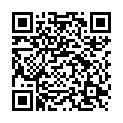|
|
|
| Module code: KI100 |
|
|
4V+2P (6 hours per week) |
|
8 |
| Semester: 1 |
| Mandatory course: yes |
Language of instruction:
German |
Assessment:
Written exam
[updated 20.03.2007]
|
KI100 (P222-0029) Computer Science and Communication Systems, Bachelor, ASPO 01.10.2014
, semester 1, mandatory course
|
90 class hours (= 67.5 clock hours) over a 15-week period.
The total student study time is 240 hours (equivalent to 8 ECTS credits).
There are therefore 172.5 hours available for class preparation and follow-up work and exam preparation.
|
Recommended prerequisites (modules):
None.
|
Recommended as prerequisite for:
KI200 Programming 2
KI210 Informatics 2
KI568
KI576
KI579 Simulation of Discrete Systems with AnyLogic
KI581 Internet Development with Java 1
KI584 Information Retrieval
KI590 Work Experience Phase
KI593 Introduction to Parallel Programming with CUDA
KI598 Game Design and Development
KI603 GUI Programming with Qt
KI615 Portal Components in JAVA
KI675 Compiler Construction
KI678 Embedded Computing
KI680 Ruby on Rails
KI691
KI696 Sino-German Student Club for Smart Sensors
[updated 21.11.2025]
|
Module coordinator:
Prof. Dr. Martina Lehser |
Lecturer:
Dipl.-Inform. Marion Bohr (practical training)
Prof. Dr. Martina Lehser (lecture)
Dipl.-Ing. Michael Sauer (practical training)
[updated 14.02.2012]
|
Lab:
Communication Systems Lab (5204)
|
Learning outcomes:
After completing this course, students will be able to explain the concepts of procedural programming and data abstraction and implement them using the object-oriented programming language C++. Students will be able to apply standard program design methods to develop solutions. Having developed an understanding of programming techniques, students will be in a position to write well-structured and well-documented programs using basic software development tools. The lab course provides students with an opportunity to learn how to present their programs and the underlying solution design.
[updated 13.03.2007]
|
Module content:
1. Procedural programming / Data abstraction: Fundamental data types, operators, control structures, functions, pointers and arrays, scope and lifetime of objects, classes
2. Design methods: Program flow charts, structure diagrams, UML class diagrams
3. Programming techniques: Modularization, separation of interface and implementation, data structures and algorithms
4. Software development tools: Preprocessors, compilers, linkers, shells, shell scripts, makefiles, debuggers
[updated 13.03.2007]
|
Recommended or required reading:
Reference books
- Kernighan, Ritchie: Programmieren in C, Carl Hanser Verlag 1988, ISBN 3-446-15497-3
- Stroustrup, B.: Die C++ Programmiersprache, 4. aktualisierte Auflage, Addison-Wesley 2000, ISBN 3-8273-1660-X
Textbooks and workbooks
- May, Dietrich: Grundkurs Software-Entwicklung mit C++, Vieweg 2003, ISBN 3-528-05859-5
- Prinz, P., Kirch-Prinz, U.: C++ Lernen und professionell anwenden, MITP-Verlag 1999, ISBN 3-8266-0423-7
- Prinz, P., Kirch-Prinz, U.: C++, Das Übungsbuch, MITP-Verlag 2004
- Erlenkötter, H.: C++, Objektorientiertes Programmieren von Anfang an, rororo 2000, ISBN 3-499-60077-3
Lecture notes
- Brocks, R.: Lecture notes
- Folz, H.G.: Programmiersprachen 1, Einführung in C++, Course notes WS 1999/2000, HTW des Saarlandes
- Folz, H.G.: Programmiersprachen 2, Objektorientierte Softwareentwicklung mit C++, Course notes SS 2000, HTW des Saarlandes
[updated 13.03.2007]
|
Module offered in:
WS 2016/17,
WS 2015/16,
WS 2014/15,
WS 2013/14,
WS 2012/13,
...
|


